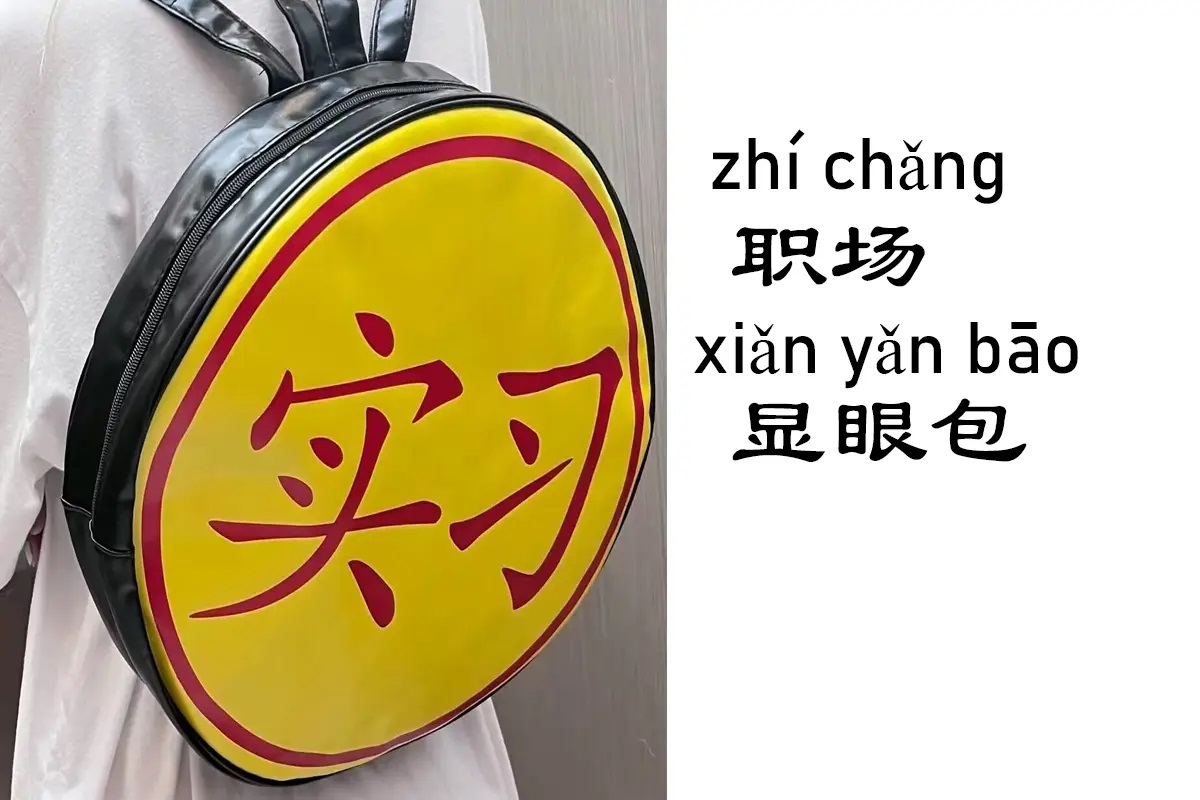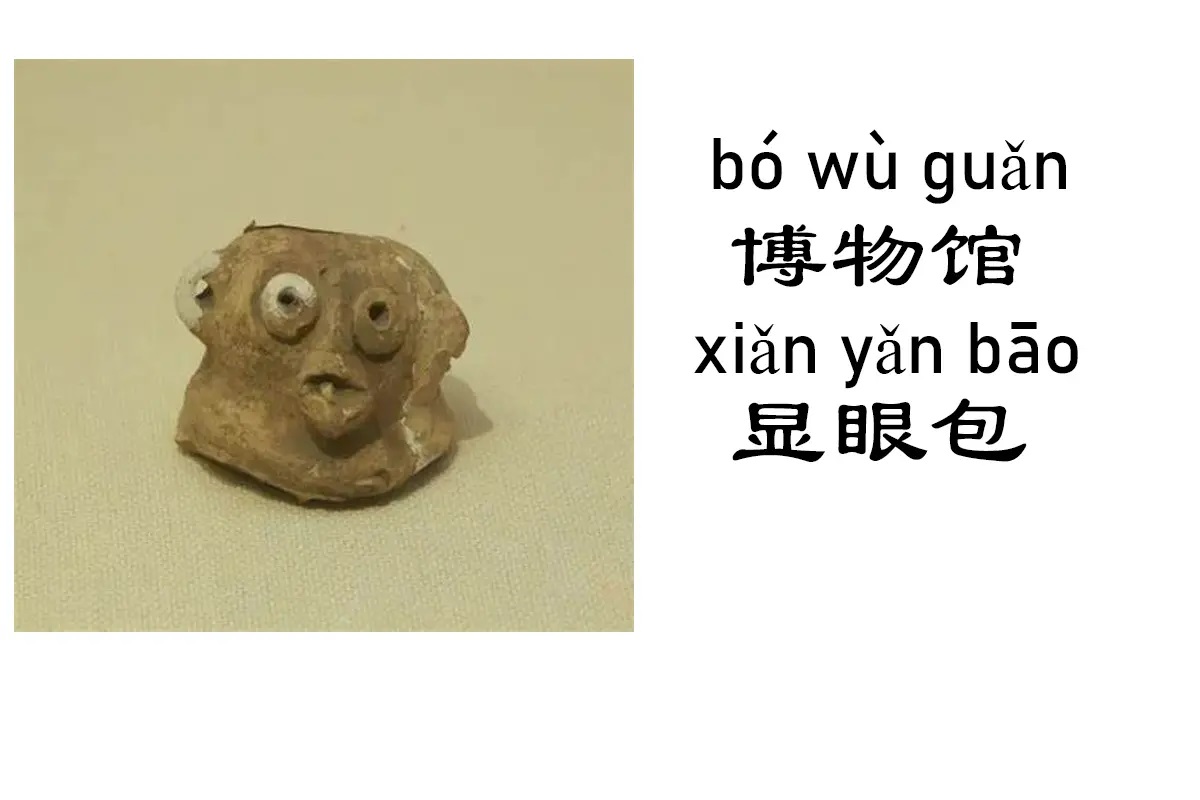The Laughing Stock: 显眼包 xián yǎn bāo (Internet Slang)
Have you heard of the term “显眼包 (xiǎn yǎn bāo)”- a internet slang in 2023? which means the “class clown” or the “laughing stock”. Recently, it has been circulating on various social media platforms. “显眼” means attracting attention, while “包” is a dialect term used to refer to a certain type of person, similar to the suffixes “-er”, “-or”, and “-ist” in English. Generally, “显眼包 (xiǎn yǎn bāo)” is used to describe someone who likes to stand out and do unconventional things, but without being annoying. It originated from the word “现眼包(xiàn yǎn bāo)”, the dialect of Sichuan and Henan Provinces. However, “现眼包” is used to describe someone with eccentric behavior, extremely flamboyant, and somewhat embarrassing. As it circulates on the Internet, it carries less negative meaning and is mostly used for teasing. “显眼包 (xiǎn yǎn bāo)” will play a fool, but feel not embarrassed at all, making them funny and adorable.
“显眼包 (xiǎn yǎn bāo)” always manage to bring extra joy to our lives, showcasing their personalities with optinism. Their presence seems to alleviate the fear of embarrassment by transforming it into humor. Besides, they appear in various occasions.
For example:
- 穿搭“显眼包”(chuān dā xiǎn yǎn bāo): the laughing stock in dressing
Dopamine dressing can definitely be seen as a laughing stock with its vibrant colors and exaggerated accessories, capturing people's attention and uplifting their mood.

- 职场“显眼包”(zhí chǎng xiǎn yǎn bāo):the laughing stock in the workplace
Someone has shared an experience online: someone labeled themselves as “interns” on their backs to indicate their intern status, thus diffusing the awkwardness of making mistakes.

- 博物馆“显眼包”(bó wù guǎn xiǎn yǎn bāo): the laughing stock in museums While artifacts may be serious, some of them become amusing and adorable due to their poses and expressions.

“显眼包 (xiǎn yǎn bāo)” is a noun. You can use it in this way:
Xiao Ming is a class clown. He made funny faces during class, thus the whole class burst into laughter.
小明真是个“显眼包”,他上课一直做鬼脸逗得全班哈哈大笑。
xiǎo míng zhēn shì gè “xiǎn yǎn bāo ”,tā shàng kè yī zhí zuò guǐ liǎn dòu dé quán bān hā hā dà xiào。
In addition to “显眼包 (xiǎn yǎn bāo)”, there are other expressions of “包 (bāo)” in Chinese:
- 受气包(shòu qì bāo): the doormat. "受气" means being bullied or being subject to others’ negative emotions. “受气包” refers to someone who allows others to treat them badly but usually does not complain.
For example: You are plain doormat, why couldn ' t you say “no”?
你真是个受气包。你怎么就不能说个“不”字呢?
nǐ zhēn shì gè shòu qì bāo 。nǐ zěn me jiù bú néng shuō gè “bú ”zì ne ? - 爱哭包(ài kū bāo): being always tearful. “爱哭” means likes to cry. “爱哭包” is mostly used to describe children and girls, who often shed tears.
For example: Xiao Hong is always tearful. She cried because she couldn't get an orange just now, and she's crying because she dropped her ice cream.
小红是个爱哭包,刚才没买到橘子哭了,现在又因为冰淇淋掉地上哭了。
xiǎo hóng shì gè ài kū bāo ,gāng cái méi mǎi dào jú zǐ kū le ,xiàn zài yòu yīn wéi bīng qí lín diào dì shàng kū le 。 - 淘气包(táo qì bāo):the troublemakers. “淘气” means naughty, “淘气包”is used to describe mischievous children.
For example: He is a troublemaker, running on the sofa one moment, throwing the pillow on the ground the next.
他真是个淘气包!一会儿在沙发上跑,一会儿又把枕头扔到地上。
tā zhēn shì gè táo qì bāo !yī huì ér zài shā fā shàng pǎo ,yī huì ér yòu bǎ zhěn tóu rēng dào dì shàng 。
Want to learn more about the internet slang meaning, check out our fun one-on-one lessons.